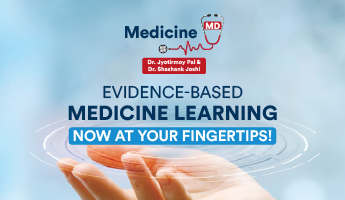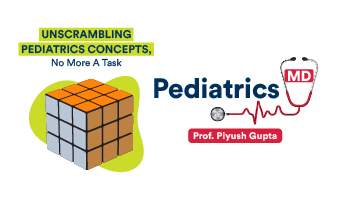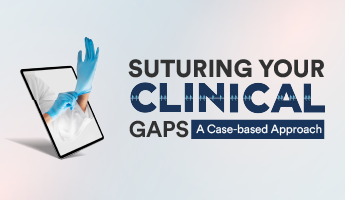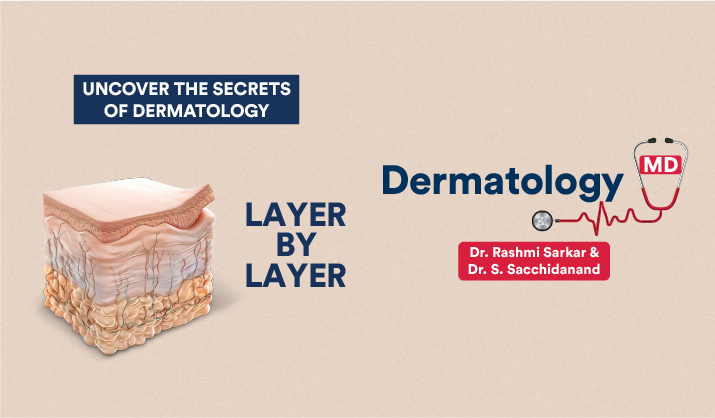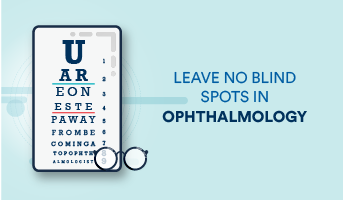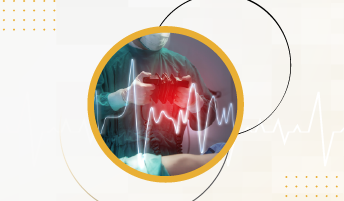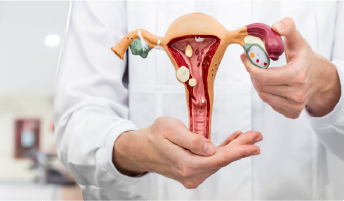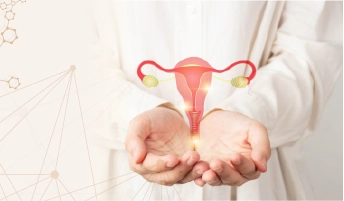Course features


Video Lecture: 175+ Hours
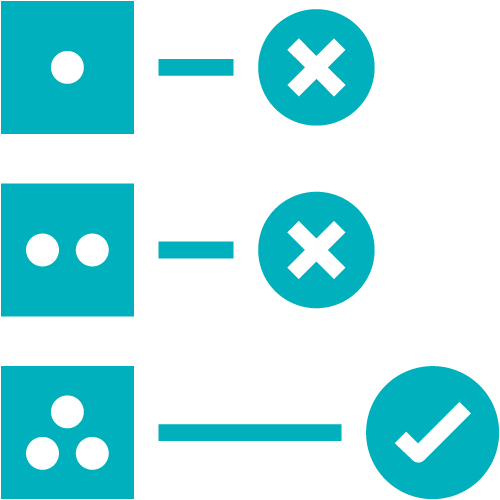

Benchmark Trials: 390+


Self-Assessment Questions: 1520+


Topics in Videos & Notes: 220+


OSCEs: 130+


Drug Chart


Dr. Wise AI Chatbot


Printed Notes Available*
About this course
Pediatrics is a specialty that is concerned with the health of infants, children, and teenagers. What makes Pediatrics a challenging field is that one has to deal with infants and children primarily, who cannot express properly what they are experiencing, and thus has to rely a lot on one’s own wit and wisdom to diagnose and cure the patients. Apart from this, another major challenge is the extremely busy schedule of the postgraduate students in the hospitals which makes it difficult for them to invest their time and efforts to go through the voluminous texts and stay updated with recent developments regularly.
Pediatrics MD is a truly remarkable course mentored by the Chief Editor- Dr. Piyush Gupta, the author of best-selling “PG Textbook of Pediatrics”. What makes this online Pediatrics course one of its kind is that it has been conceptualized and taught by India’s top 140 faculty with over 500 years of collective experience and expertise.
All the topics in the Pediatrics MD Course have been thoughtfully selected keeping in mind the pain areas of the postgraduate students for which they struggle to find sufficient information. The course encourages concept-based and approach-based learning to cater to all the learning needs of the students while they are pursuing their masters in Pediatrics. The concepts have been supported with benchmark/evidence-based studies. The cases have been discussed in detail with special emphasis on the clinical findings and complete work up on how to arrive at the right diagnosis. The investigations like ECGs, echocardiography, and other reports, etc. have been discussed as well to brush up on the concepts of students. Systemic examination has been presented as integrated videos within the lectures as well as live demonstrations.
Neurology is one of the most frequently asked sections in the PG examination. Therefore, around 20% of the course has been dedicated to this specialty where the faculty has taken a structured approach to simplify the concepts for the students. This Pediatrics MD Course is one of the best online pediatrics postgraduate courses as the latest society guidelines have been incorporated in each topic. As research forms a very important part of the PG curriculum, a whole module has been dedicated to guiding the students with a step-by-step approach towards the same. Interactive Drug formulary has been provided in the course to help the students gain quick access to various drugs during their ward rounds. Important indications, contraindications, dosages, and common brand names have been included in this for all the major drugs. Regular engagement activities like Chat Shows, Journal Club, and recent updates are a part of the course.
The Course Includes:
- Video Lectures: 175+ hours of video lecture supported by benchmark/evidence-based studies.
- Topics Covered: This course includes well-illustrated 220+ topics in videos and notes which will act as a ready reckoner for students. Each topic is supplemented with evidence-based research studies mentioned at the end.
- Clinical Case-Based Discussion: Ample case discussions have been included in each topic to provide a clinical orientation to the students.
- Self-Assessment Questions: 1520+ MCQs have been included for self-assessment.
- Benchmark Trials: 390+ evidence-based studies/benchmark trials have been added to remain updated with recent advances in the field.
- Interactive Drug Formulary: Detailed drug formulary included with important indications, contraindications, dosages, and common brand names.
- OSCEs: OSCEs provide a standardized and objective method of assessing a postgrad's clinical skills and competencies by offering quick revision and self-evaluation, effectively mirroring real exam conditions.
- Engagement Activities: Regular Chat Shows, Journal Club, and recent updates included as monthly engagement activities with a panel comprising Prof. Piyush Gupta and an expert in the field.
- Dr. Wise (AI Chatbot): The chatbot clarifies theoretical as well as practical concepts with the help of AI. It is a comprehensive and interactive solution provider integrated with authentic published resources like books, journals, notes, and videos to offer apt explanations of concepts, treatment modes and more.
- Printed Notes: Concise notes are designed to save time by providing exam-focused, crisp details along with visual learning at an affordable price. The notes also comprise previous years' questions and ensure comprehensive coverage in minimum time. Existing users can purchase the printed notes @5,495 from here.
3 Days Money Back Guarantee available T&Cs apply.
Pediatrics is a specialty that is concerned with the health of infants, children, and teenagers. What makes Pediatrics a challenging field is that one has to deal with infants and children primarily, who cannot express properly what they are experiencing, and thus has to rely a lot on one’s own wit and wisdom to diagnose and cure the patients. Apart from this, another major challenge is the extremely busy schedule of the postgraduate students in the hospitals which makes it difficult for them to invest their time and efforts to go through the voluminous texts and stay updated with recent developments regularly.
Pediatrics MD is a truly remarkable course mentored by the Chief Editor- Dr. Piyush Gupta, the author of best-selling “PG Textbook of Pediatrics”. What makes this online Pediatrics course one of its kind is that it has been conceptualized and taught by India’s top 140 faculty with over 500 years of collective experience and expertise.
All the topics in the Pediatrics MD Course have been thoughtfully selected keeping in mind the pain areas of the postgraduate students for which they struggle to find sufficient information. The course encourages concept-based and approach-based learning to cater to all the learning needs of the students while they are pursuing their masters in Pediatrics. The concepts have been supported with benchmark/evidence-based studies. The cases have been discussed in detail with special emphasis on the clinical findings and complete work up on how to arrive at the right diagnosis. The investigations like ECGs, echocardiography, and other reports, etc. have been discussed as well to brush up on the concepts of students. Systemic examination has been presented as integrated videos within the lectures as well as live demonstrations.
Neurology is one of the most frequently asked sections in the PG examination. Therefore, around 20% of the course has been dedicated to this specialty where the faculty has taken a structured approach to simplify the concepts for the students. This Pediatrics MD Course is one of the best online pediatrics postgraduate courses as the latest society guidelines have been incorporated in each topic. As research forms a very important part of the PG curriculum, a whole module has been dedicated to guiding the students with a step-by-step approach towards the same. Interactive Drug formulary has been provided in the course to help the students gain quick access to various drugs during their ward rounds. Important indications, contraindications, dosages, and common brand names have been included in this for all the major drugs. Regular engagement activities like Chat Shows, Journal Club, and recent updates are a part of the course.
The Course Includes:
- Video Lectures: 175+ hours of video lecture supported by benchmark/evidence-based studies.
- Topics Covered: This course includes well-illustrated 220+ topics in videos and notes which will act as a ready reckoner for students. Each topic is supplemented with evidence-based research studies mentioned at the end.
- Clinical Case-Based Discussion: Ample case discussions have been included in each topic to provide a clinical orientation to the students.
- Self-Assessment Questions: 1520+ MCQs have been included for self-assessment.
- Benchmark Trials: 390+ evidence-based studies/benchmark trials have been added to remain updated with recent advances in the field.
- Interactive Drug Formulary: Detailed drug formulary included with important indications, contraindications, dosages, and common brand names.
- OSCEs: OSCEs provide a standardized and objective method of assessing a postgrad's clinical skills and competencies by offering quick revision and self-evaluation, effectively mirroring real exam conditions.
- Engagement Activities: Regular Chat Shows, Journal Club, and recent updates included as monthly engagement activities with a panel comprising Prof. Piyush Gupta and an expert in the field.
- Dr. Wise (AI Chatbot): The chatbot clarifies theoretical as well as practical concepts with the help of AI. It is a comprehensive and interactive solution provider integrated with authentic published resources like books, journals, notes, and videos to offer apt explanations of concepts, treatment modes and more.
- Printed Notes: Concise notes are designed to save time by providing exam-focused, crisp details along with visual learning at an affordable price. The notes also comprise previous years' questions and ensure comprehensive coverage in minimum time. Existing users can purchase the printed notes @5,495 from here.
3 Days Money Back Guarantee available T&Cs apply.
See Less...Content
Orientation to PG-Pediatrics Course
Introduction to Section Editors
Indicators of Child Health and Vital Statistics
Resources for Learning in Pediatrics
Clinical Pediatrics Neonatal examination
Clinical Pediatrics Neonatal Examination
General Physical Examination
Nurturing Care for Early Childhood Development (NC-ECD)
Assessment of Nutritional Status - Basics and dietary Assessment
Assessment of Nutritional Status - Anthropometric Measurements
Nutritional Status of Children and National Programs in India
Micronutrient Supplementation: Key Issues
Breastfeeding & Human Milk Banking
Complementary Feeding
JUNCS Guidelines & Way Forward
Severe Acute Malnutrition - Case presentation
Community Based Management of Severe Acute Malnutrition
Moderate Acute Malnutrition
Role of Zinc in Health and Disease
Vitamin A Deficiency
Immunization Dialogue - General Concept
Immunization Dialogue - Concept of Specific Vaccines
Prevention of Hospital-Acquired Infections
Principles of Antibiotic Therapy
Antimicrobial Resistance
Resistant Bacterial Infections
Diagnosis of Pulmonary Tuberculosis
Treatment of Tuberculosis
COVID-19
Anti-Viral Therapy
Helminthiasis: Current Perspectives
Dengue Fever
Malaria: Diagnosis and Management
Management of a Child with Human Immunodeficiency Virus (HIV) Infection
Elimination of Mother to Child Transmission of Human Immunodeficiency Virus (HIV) Infection and Care of HIV Exposed baby
Elimination of Mother to Child Transmission of Human Immunodeficiency Virus (HIV) Infection and Care of HIV Exposed Baby
Assessment of Gestation Age
Assessment of Gestational Age
Neonatal Reflexes
Neonatal Resuscitation
X-ray and ECG in Neonates
X-ray and ECG in Neonates
Neonatal Jaundice
Comprehensive New Born Screening for Birth Defects
Comprehensive New-Born Screening for Birth Defects
HIE, IVH and White Matter Injury
Follow-up of High-risk Newborn
Neonatal Sepsis
Care of Extremely PT & ELBW
Persistent Pulmonary Hypertension of Newborn
Retinopathy of Prematurity
Necrotizing Enterocolitis
Feeding of Low Birth Weight Babies
Respiratory Distress in Neonates
Respiratory Distress IN Neonates
Shock
Fluid Therapy
Electrolyte Abnormalities in Critically ill Children
ABC of ABG
Cardiopulmonary Resucitation
Cardiopulmonary Resuscitation
Oxygen Therapy and Ventilation
General Principles of Poisoning Management
Surgical Emergencies in Pediatrics
Management of Acute Respiratory Distress Syndrome
Use of blood and blood products in critically ill children
Use of blood and blood products in critically ill Children
Use of Blood and Blood Products in Critically Ill Children
Nutrition in Critically Ill Child
Nutrition in Critically ill child
Scorpion Sting
Drowning and Subermersion Injuries
Approach to Diagnosis of Inborn Errors of Metabolism
Approach to Diagnosis of Genetic Disorders
Chromosomal-Disorders - Introduction
Chromosomal Disorders - Down syndrome
Newborn Screening in India
Approach to Skeletal Dysplasia
Basic of Glycogen storage disease
Basic of Glycogen Storage Disease
Patterns of Inheritance
Down Syndrome
Gene Therapy
Genomics: What a Pediatrician Should know
Genomics: What a Pediatrician Should Know
Prevention Strategies for Genetic Conditions
Gaucher Disease
Lysosomal Storage Disorders
Lysosomal storage disorders
Examination of Abdomen
Approach to a Child with Hepatosplenomegaly
Approach to a Child with Jaundice
Interpretation of Liver Function Tests with Case Scenarios
Persistent Diarrhea
Approach to Chronic Liver Disease
Portal Hypertension and Ascites
Upper GI Bleed Diagnosis and Management
Upper GI Bleed: Diagnosis & Management
Approach to A Child with Constipation
Approach to a Child with Constipation
Approach to a Child with Malabsorption
Approach to neonatal cholestasis
Approach to Neonatal Cholestasis
Approach to a Child with Recurrent Abdominal Pain
Approach to a child with Recurrent Abdominal Pain
Gastroesophageal Reflux Disease in Children
Liver Abscess in Children Manifestations and Management
Non Alcoholic Fatty Liver Disease (NAFLDMASLD) in Children
Non-alcoholic Fatty Liver Disease
Pediatric Liver Transplantation: When Why How?
Pediatric Liver Transplantation: When, Why and How?
Growth and Growth Charts
Approach to Short Stature
Interpretation of Thyroid Function Tests in Newborn
Differential Diagnosis and Management
Diabetic Ketoacidosis
Ambulatory Management of Type 1 Diabetes in Children
Approach to Early Puberty
Approach to Delayed Puberty
Disorders of Sex Development: A Practical Approach
Approach to Tall Stature
Hypothyroidism Diagnosis and Management
Hypothyroidism: Diagnosis and Management
Gynecomastia
Hypocalcemia
Congenital Adrenal Hyperplasia
Management of Growth Hormone Deficiency in Children
Approach to a Child with Anemia - Basic
Interpretation of CBC and Peripheral smear
Hemolytic Anemia: Thalassemia
Nutritional Anemia
Bleeding Disorders in Pediatric Practice
Approach to Coagulation Disorders
Thrombotic Disorders In Children
Thrombotic Disorders in Children
Pedriatric Aplastic Anemia and Inherited Bone Marrow Failure Syndromes
Hematopoietic stem cell transplantation in Pediatric practice
Hematopoietic stem cell transplant in Pediatric practice
Approach to Anemia with Hepatosplenomegaly
Autoimmune Hemolytic Anemias
Examination of Cardiovascular System in Children
Basic ECG and Arrhythmias in children
Basic ECG and Arrhythmias in Children
Approach to a Child with Congenital Heart Disease
Left-to-Right Shunts
Approach to Cyanotic Heart Diseases
Cyanotic Heart Disease (Fallot Physiology)
Rheumatic Fever and Rheumatic Heart Disease
Cardiomyopathies and Congestive Heart Failure - Differential diagnosis and management
Cardiomyopathies and Congestive Heart Failure - Pathophysiology and management
Pediatric Pulmonary Hypertension
Importance of X-ray in Present Era in Diagnosing Cardiac Disease
Newer Concepts in Pediatric Heart Failure
Catheter interventions and Scope of intervention in Children
Catheter Interventions and Scope of Intervention in Children
Cardiac Involvement in Systemic Diseases
Urinary Tract Infections
Proteinuria and Nephrotic Syndrome in Children
Proteinuria & Nephrotic Syndrome in Children
Approach to Hematuria and Acute Nephritic Syndrome
Approach to Hematuria and Acute Nephritic Syndrome
Renal Tubular Disorders
Acute Kidney Injury
Chronic Kidney Disease
Hypertension
Examination of Respiratory System
Aerosol therapy
Bronchial Asthma Acute Management
Bronchial Asthma Long-term Management
Pneumonia: Differential Diagnosis and Management
Pleural Effusion: A Case-based Discussion
Laryngeal Disorders
Approach to a Child with Chronic Wet Cough
Approach to an Infant with Noisy Breathing
Interstitial Lung Disease Diagnosis and Management
Interstitial Lung Disease: Diagnosis and Management
Management of Empyema Thoracis
Clinical Neuroanatomy
Higher Mental Function Assessment
Cranial nerve examination
Cranial Nerve Examination
Examination of the Motor System Gait Tone and Muscle Bulk
Examination of the Motor System Muscle Power
Examination of Sensory System Cerebellar and Meningeal Signs
Examination of Sensory System, Cerebellar and Meningeal Signs
Case-based Understanding of Localization in Neurology
How to summarize and Present a Neurological Case
How to Summarize and present a Neurological Case
Bare Basics of Interpreting Neuroimaging
Understanding the Basics of EEG
Principles of Developmental Evaluation
Developmental Assessment First 6 Months of Life
Developmental Examination (6 months–2 years)
Developmental Examination (6 months-2 years)
Developmental Examination (2-5 years)
Case Scenarios in Developmental Deviations
How to Present a Case of Cerebral Palsy
Case Presentation of TBM
Case Presentation of DMD
Case Based Discussion of Seizure and Epilepsy in Children
Case-Based Discussion of Seizure and Epilepsy in Children
Common Case Scenarios Presenting with Epilepsy in Children
Movement Disorders Phenotypic/Clinical Spectrum
Movement Disorders: Phenotypic/Clinical Spectrum
Case Based Approach to Hydrocephalus and Neural Tube Defects
Case-Based Approach to Hydrocephalus and Neural Tube Defects
Pediatric Stroke: Challenges in Diagnoses and Management
Pediatric Stroke: Challenges in Diagnosis and Management
Approach to Floppy Infant
Hypertension
Autism Spectrum Disorders
Autism Spectrum Disorder
Learning Disability
Approach to Ataxia in Children
Childhood Headache
Approach to a Child with Rheumatic Disorder
Approach to a Child with Rheumatic Disorder & pGALS Exam
Rational Diagnostics for Rheumatic Disorders - Laboratory Investigation
Rational Diagnostics for Rheumatic Disorders - Imaging
Juvenile Idiopathic Arthritis and Mimics
Childhood-onset Systemic Lupus Erthematosus (cSLE)
Childhood-onset Systemic Lupus Erythematosus (cSLE)
Approach to Pediatric Vasculitis
Macrophage Activation Syndrome
Principles of Management of Pediatric Rheumatological Disorders
Approach to Primary Immunodeficiency Diseases
Clinical Approach to Diagnosis of a Child with Arthritis
Kawasaki Disease
Study Designs
Steps of Conducting Research the ABC
Steps of Conducting Research the ABC (RQ, Aim, Objectives)
Principles of Statistical Analysis
Sample Size Estimation
Basics of Systematic Review and Meta-analysis
Basics of Data Entry in Microsoft Excel
Designing a Study Questionnaire including Google Form
Designing a Study Questionnaire Including Google Form
Ascitic Tap and Pleural Tap
Bone Marrow Aspiration and Biopsy
Intravenous Cannulation & Nasogastric Tube Insertion
Liver Biopsy
Lumbar Puncture & Transurethral Bladder Catheterization
Eye problems in Neonates
Eye Problems in Neonates
Pediatric Ocular Trauma
Pediatric Cataract Causes, Diagnosis, and Management
Pediatric Cataract: Causes, Diagnosis, and Management
Principles of Cancer Therapy
Principles of Cancer therapy
Acute Leukemia
Lymphoma
Oncological Emergencies in Children Cancers
Oncological Emergencies in children Cancers
Supportive Care in Pediatric Oncology
Wilms Tumor and Retinoblastoma
Tumors in Pediatric Oncology: Wilm's tumor and Retinoblastoma
Tumors in Pediatric Oncology: Wilm's Tumor and Retinoblastoma
Principle, Types and Indication of Transplant in Pediatric Population
Principle, Types and Indication of Transplant in Pediatric
Pediatric Dermatology: Systemic Disease
Pediatric Dermatology: Metabolic, Immunodeficiency, Nutritional, & Miscellaneous Disorders
Pediatric Cutaneous Infections
Pediatric Urticaria and Mastocytosis
Cutaneous Drug Reactions
Immunization Part 2
Immunization: Current Perspectives
Pediatric Neurology
Pediatric Gastroenterology
Pediatric Intensive & Critical Care
Infectious Disease
Short stature Endocrine Evaluation and Management
Pediatrics Cardiology
Chest Radiographs & ECGs
Neonatology
Recent Advances in pediatrics
Case-based Approach to Common Hematological Conditions in Children
Common Cases in Rheumatology
Pediatric Tuberculosis
Vitamin D Deficiency
IAP Guidelines on Screen Time (2022)
Neonatal Hyperbilirubinemia
Drug Chart
Adolescent Growth and Development
Adolescents Mental Health Problems
Adolescent Mental Health Problems
Intravenous Immunoglobulims in Pediatric Practice
Diagnosis and Management of Allergic Rhinitis
Adolescent Growth and Development
FAQs
Is Pediatrics a promising field to specialize in?
Pediatrics is a highly booming and promising field to specialize in, especially for the one who loves to deal with children. Pediatrics is an in-demand field and has greater scope for skilled professionals as there is an increase in a number of healthcare units and a huge concern to decrease the infant mortality rate in India. A pediatrician's career provides them the chance to carefully examine basic to complicated clinical issues in children and equips them to deal with medical problems.
What are the eligibility criteria for pursuing PG in Pediatrics?
The minimum eligibility criteria for pursuing PG in Pediatrics is the completion of an MBBS degree with a minimum of 50% aggregate along with the successful completion of one-year rotational internship. Additionally, you must crack the NEET-PG or INI-CET entrance examination with a competitive score to get admission to the postgraduate courses.
How many seats are available for MD Pediatrics in India?
There are approximately 3281 MD Pediatrics seats in India. Admission to all these seats is done through INI-CET or NEET-PG entrance examination.
What is the salary range for an MD Pediatrician in India?
Pediatrics is a growing and extremely lucrative area of medicine. A Pediatrician's salary in India typically ranges from 10-15 lakh per year at first, which escalates based on numerous criteria and the level of expertise. Geographical location, place of employment (whether in the public or private sector), experience level, specialization, healthcare organization, and other variables all have an impact on the pay scales of a pediatrician.
What career paths can one pursue after completing an MD in Pediatrics?
There is a wide range of career paths after completing MD in Pediatrics in India, for example, becoming Pediatrician at any government or private healthcare facility, Researcher at any research institute or pharmaceutical, Academician along with practicing as a Pediatrician, or can also pursue a super specialization in any Pediatrics specialty such as Pediatric Cardiology, Pediatric Oncology, Pediatric Hematology, Pediatric Neurology and more. The job profiles associated with these include Pediatrician, Neonatologist, Pediatric Intensivist, Clinical Research Associate, Lecturer/Professor, Medical Writer, Pediatric Oncologist, etc.

